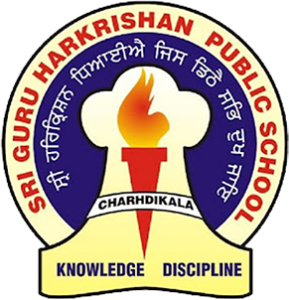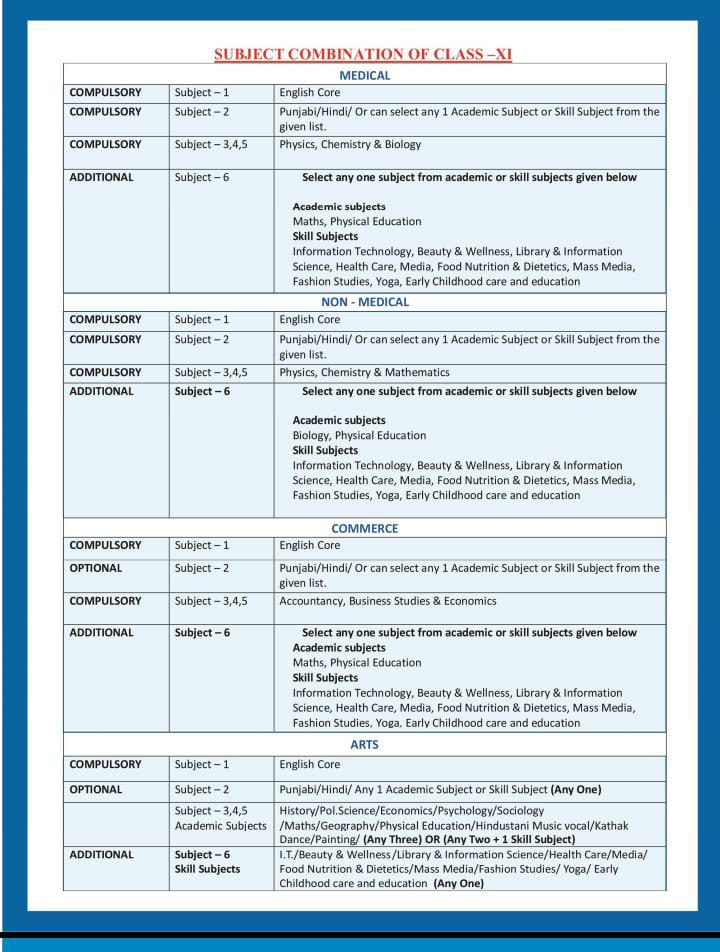* DETAILS OF CURRICULUM
Our curriculum involves a planned set of educational experiences to be provided to the learners by the school. It consists of general objectives of learning, academic planning, pedagogical practices and assessment guidelines.
* FEATURES OF THE SCHOOL CURRICULUM:
- Enlist general and specific teaching and assessment objectives
- Promote inclusive education by providing equal opportunities to all students
- Integrate environmental education in various disciplines
- Equally emphasize co-scholastic areas of art education and health and physical education.
- Enlist activities that will strike and perfect balance to ensure harmonious growth of the students.
* OBJECTIVES OF THE CURRICULUM
- Our school curriculum aims at adopting a variety of teaching -learning processes that allow students to learn with understanding.
- To promote life skills and lifelong learning.
- To provide quality education through holistic development strategies.
- To promote physical fitness, health and well being.
- To promote art integrated learning.
* CURRICULUM AREAS:
Our School curriculum includes subjects like languages, Mathematics, Science and social science, Environment Studies, General Knowledge, Drawing, Music which help in the cognitive development of the child therefore, require a greater academic emphasis.
* SCHOLASTIC AREAS
Our school has taken initiatives for exploring languages at all levels-Pre-Primary, Primary Secondary level by enhancing the listening, speaking, reading, vocabulary skills by giving students the opportunities to participate in classroom educational activities. For mathematics skills, the concepts related to geometry, probability & statistics will be applied in order to develop the understanding about the principles of reasoning and problem-solving. The focus is on knowledge and skills to develop scientific attitude. To achieve this goal, Lab activities and group projects will be taken into consideration. Quiz & brain storming activities will be conducted in the classrooms for enhancing cognitive skills. In Social Science, learners understand their cultural, geographical and historical knowledge. Map skills activities and group discussions, presentations at senior level will be executed in classrooms.
* CO-SCHOLASTIC AREAS
- Health and Physical Education:The physical activity programme of our school includes various organized games like Basketball, Volleyball, Kho-kho competition, Badminton, Cricket, Football, Rope Skipping, Kabbadi, Chess, Handball, Taekwando ,Zumba activities in morning assemblies and reflect our motive for a healthy physical fitness culture.
- Art- Education:The school aims at making students more creative by integrating the art education with environmental activities. Our Art education programme will involve best out of waste activities, paintings, design, clay art. The students will be engaged in all these art activities in order to develop their imaginative and creative thinking.
* SCHOOL CURRICULUM COMMITTEE
Our school curriculum committee involves The Head of the Committee, Dr. Kanwaljit kaur, who ensures the overall supervision of implementing the best curriculum strategies, and The HODs (Head of the Departments) of each subject, who defines activities for pedagogical activities, evolve a plan of assessment and ensure its implementation.
* PEDAGOGICAL PRACTICES BY TEACHERS:
Teachers will focus on making efforts to explain well to ensure learning with understanding from the textual material taught in school to real life by implementing various activities like Role Play activities, Smart Class teaching, Preparation of Working Science & Maths models. Our school curriculum aims at enhancing the practical knowledge of the students.
* ART INTEGRATED PEDAGOGY
The special emphasis is given on integrating art with education. The aim of implementation of best pedagogical practices involves learner-centric approach. Teachers will evaluate the assessment based on the academic projects, creative-eco club projects, maintenance of notebooks, charts & models made by the students. Smart class teaching will also conducted in the classrooms. Taking into consideration all guidelines issued by the CBSE for making the students The Army of environmental Saviors’, This move will be carried forward with even more creativity both by teachers and students. We will acknowledge all activities related to environmental issues as a part of environmental studies.
* ASSESSMENT PLAN (CLASS -I to VIII)
Internal assessment (20 Marks)
Internal Assessment assesses students in diverse manner, at different times and also examines a broad range of curriculum objectives. It is prepared by our teachers to evaluate the performance of individual learner over a period of time enabling them to develop strategies to improve learning.
1. Periodic Test (10 Marks)
These tests include Unit tests that tend to follow a pattern, which is quite similar to the final end of course examination. It tends to prepare students for final summative exams in a more confident manner. The weightage of this component is 10 marks.
2. Subject Enrichment Activities (5 Marks)
Our subject enrichment activities involves listening and speaking skills for languages. For subjects like Science and Mathematics, notebook maintenance, class activities, project files, Practical files are evaluated. They ought to provide opportunity to students to explore their own interests as well along with an understanding of the nature of particular discipline. The discipline of Social Science will engage students to design and execute relevant projects. In addition to it, The Quiz activity will be conducted for evaluating the subject enrichment for Social Science.
3.Subject Activity (5 Marks)
Our subject activity involves evaluation for map skills in social sciences, skip tables and worksheets for Mathematics. Diagram files and models are evaluated for Science subject. For languages, teachers evaluates the preparation of grammatical charts, flash cards, grammar worksheets. The weightage of this component is 5 marks.
4.SUMMATIVE ASSESSMENT(80 Marks)
The Final Examination of three hour duration for 80 marks in each subject will cover syllabus as prescribed for classes I to VIII.
* ASSESSMENT PLAN OF CLASS IX & X
* INTERNAL ASSESSMENT(20 Marks)
1. PERIODIC TEST (5 Marks)
These tests includes Unit tests that tend to follow a pattern, which is quite similar to the final end of course examination. The weightage of this component is 5 marks.
2.MULTIPLE ASSESSMENT(5 Marks)
Teacher uses multiple and diverse techniques to assess learners Observation, oral tests, individual or group work, class discussion, concept maps are involved in this assessment for evaluation etc.
3.PORTFOLIO (5 Marks)
A portfolio is a purposeful collection of intentionally chosen student’s work representing a selection of performances that is assembled over time and describes the efforts of the learner’s progress, growth and achievement in key areas learning outcomes. Teachers enhance the critical thinking of the students by executing Map skills, MCQ Worksheets etc.
4.SUBJECT ENRICHMENT ACTIVITIES (5 Marks)
Our subject enrichment activities involves listening and speaking skills for languages. For subjects like Science and Mathematics, Lab activities, project files, Practical files are evaluated. The discipline of Social Sciences engage students to design and execute relevant projects.

